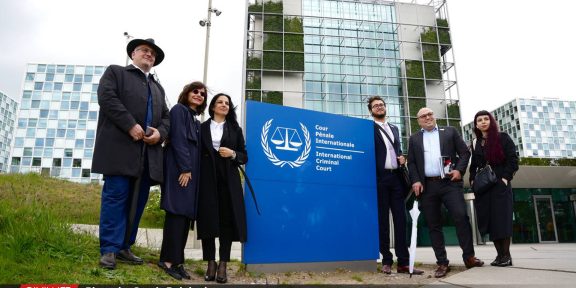The article was published in the World Energy Weekly (December 28 issue), a publication of Petrostrategies, a French think tank specializing in energy and geoeconomics.
There seem to have been two losers in the war that unfolded in Karabakh from September 27 to November 9, 2020. The first one is Armenia, of course; all eyes have been focused upon it, as it suffered a crushing military defeat. However, a second loser is now emerging in the background. This is Iran, which is now being threatened with territorial dismemberment by the winning tandem that emerged after the war.
A month to the day after the ceasefire, during a Victory Parade held in Baku on December 10, Azerbaijan and Turkey revealed their territorial claims to Iran’s north-western provinces. These ambitions were expressed in the form of….poetry! During the military parade in Baku, loudspeakers broadcast epic poems mentioning the Arg of Tabriz and the mountain of Sabalan, both emblematic sites in the Iranian provinces inhabited by an Azeri population. Turkish President Recep Tayyip Erdogan was more explicit, reciting verses from a poem, written during the 1920s, deploring the “forced separation” of the two Azerbaijans: the ex-Soviet Republic in the north, and the Iranian regions in the south.
The Iranians hadn’t expected this. They had watched the war unfold as attentive observers, officially showing a preference for Baku. To be prepared for any eventuality, they had amassed considerable forces along the Araxes, the river separating them from Azerbaijan and Armenia, but without intervening. After the ceasefire, Tehran even congratulated Baku on its victory.
But now Azerbaijan and its Turkish ally have threateningly turned their gaze towards Iran. The latter’s foreign minister reacted immediately with an angry tweet, managing to convey that it was Baku that should feel threatened. The Turkish Ambassador to Tehran was presented with a note of vigorous protest. The Iranian press and analysts, for their part, denounced Ankara’s “expansionist” and “neo-Ottoman” aims. But it wasn’t over yet.
Five days after the military parade in Baku and its poetic political messages, Azerbaijan and Turkey announced that they had signed an agreement to build an 85-km gasline to supply Azeri gas from Igdir in northeastern Turkey to the Nakhchivan exclave. This autonomous republic of Azerbaijan, which lies landlocked between Armenia, Iran and Turkey, currently receives its gas from Iran. In return, Iran receives Azeri gas, lifting 15% of it under the swap agreement. The volume in question is low: some 300 MMcm/annum, for Nakhchivan’s population of some 500,000 inhabitants. This, however, makes Azerbaijan dependent on Iran, and Baku and Ankara now want to put an end to this reliance. Do they think their Iranian neighbor will give them any trouble? This is probably the question being asked in Tehran.
The Iranian Azeris (of Farsi extraction) are ethnically different to Azeris in the Republic of Azerbaijan (who are of Turkish origin). However, both populations speak Turkic languages and are Shia muslims. The confusion generated by their shared name has sometimes been exploited for regional political goals: by Tsarist Russia, for example, but also by the Soviet Union, which installed an ephemeral People’s Government in Iranian Azerbaijan in 1945-46, under Stalin. The first non-communist President of the Republic of Azerbaijan, Abulfaz Elchibey (1992-1993), openly called for Iran’s Azeri provinces to be integrated into his country. This attitude earned him Iran’s enmity. Tehran’s relations with Baku only gradually normalized under Elchibey’s successor, Haydar Aliyev (1993-2003), the father of the current President of Azerbaijan.
However, the question of reunifying the two Azerbaijans is still latent and is often raised during Azeri World Congresses, which are held periodically in Baku. While Tehran remained alert, it probably had no idea that Erdogan would dare to champion this cause in Baku. The Turkish President’s extremely interventionist foreign policy, which stretches from Libya to Iraq and Syria, is a source of concern for many throughout the world. During the recent war, he also established a military foothold in Azerbaijan, on Iran’s northern frontier.
“One nation, two states” is a slogan that has been in vogue in Turkey and Azerbaijan for some years, and is now giving the Iranians cause for concern. The two countries dream of establishing a continuous territorial link with each other through southern Armenia. The latter’s southern province, Zangezur, has been the only obstacle to such a link since 1934, when Iran ceded a tongue of land to Ankara, connecting Turkey to Nakhchivan, and which is proving so useful today. However, Ilham Aliyev openly claimed Zangezur (along with much of the rest of Armenia) in his December 10 speech in Baku. To say the least, this is most decidedly not the outcome of the Karabakh war for which Tehran congratulated its northern neighbor.
















